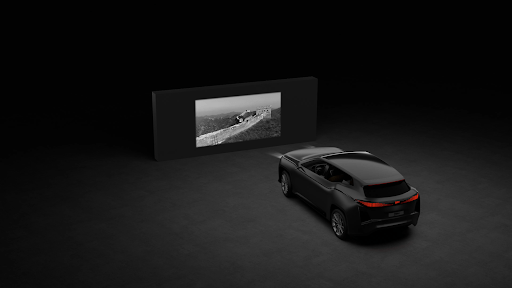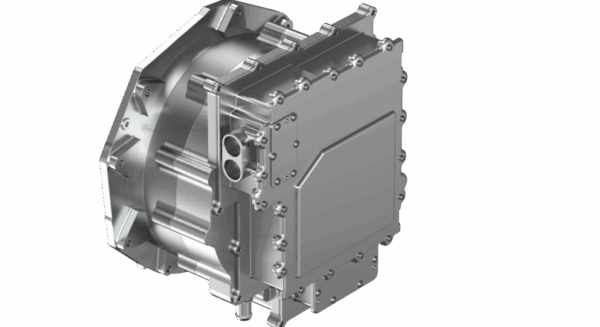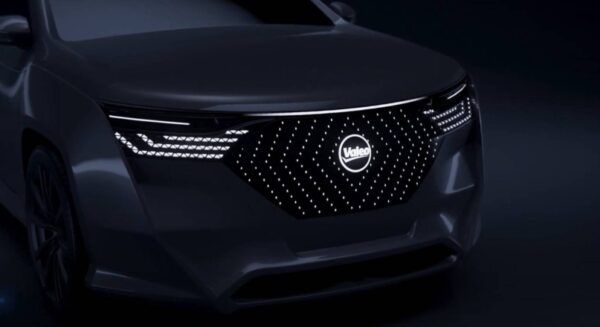- #ValeoInnovationChallenge
Mexico and Poland take top honors in the Valeo Innovation Challenge | Valeo
Paris, October 26, 2017 – Jacques Aschenbroich, Chairman and Chief Executive Officer of Valeo and Chairman of the Valeo Innovation Challenge jury, today revealed the winning teams of the 2017 contest at a ceremony at the Maison de la Recherche in Paris.
The big winners of the fourth annual Challenge were the teams CLEY from University of San Luis Potosí (Mexico) and FUTUCITY from the Jan Matejko Academy of Fine Arts (Poland), which took top honors, respectively, in the “technological innovation” and “ideas for new ways to use cars” categories.
CLEY was awarded the grand prize of 100,000 euros in the “technological innovation” category for their system that activates during vehicle braking phases to create hydrogen, which can be blended with gasoline to improve the engine’s combustion efficiency. The team has also been offered the chance to join a Valeo-partnered start-up accelerator to help develop their concept.
In the “ideas for new ways to use cars” category, FUTUCITY received the grand prize of 100,000 euros for their project of autonomous vehicle that serves as a means of transportation, goods delivery and a sleeping capsule all in one. At night, the parking spaces transform into accommodation sites and the vehicles become sleep capsules on demand.
Joining these two teams on the podium were SPMIP from the Warsaw University of Technology (Poland) and Ours Mobility from EDHEC Business School (France), which each won a second-place prize of 10,000 euros in the “technological innovation” and “ideas for new ways to use cars” categories, respectively.
SPMIP’s project involved a system designed to analyze the condition of the road and detect ice invisible to the naked eye, then provide real-time alerts to enable the driver to safely adapt his or her driving style accordingly. Ours Mobility’s project consisted in a free application that harnesses big data to find the easiest, most economical and environmentally-friendly solution for parking and recharging vehicles.
During the grand final, the seven finalist teams (see list below) were asked to present their projects to the
Valeo Innovation Challenge jury, which was made up of members of the Group’s Management team as well as eminent scientists and business leaders (see jury members below).
Enthusiasm for the Valeo Innovation Challenge was stronger than ever in the contest’s fourth year, with participation at a record high. Nearly 5,000 students from around the world and 1,628 teams from 80 countries and 748 universities and schools signed up to compete.
“With the Valeo Innovation Challenge, Valeo aims to give students from around the world the opportunity to play an active role in automotive innovation by imagining tomorrow’s technologies and new ways of using cars,” said Jacques Aschenbroich who, while closing the fourth Valeo Innovation Challenge, took advantage of the occasion to kick off the fifth annual contest.
For more information: https://valeoinnovationchallenge.valeo.com/
2017 finalist teams:
- The team from the Autonomous University of San Luis Potosí (Mexico), with a project to recover braking energy
- The team from the National Technical University of Athens (Greece), with a vehicle-to-vehicle energy transfer project
- The team from the Warsaw University of Technology (Poland), with a project to detect icy and wet road surfaces
- The team from the University of Granada (Spain), with a project to measure vehicle emissions and cabin air quality in real time
- The team from Roorkee Institute of Technology (India), with a smart speed control project to optimize travel time and safety while easing congestion
- The team from the Jan Matejko Academy of Fine Arts (Poland), with a project to build capsules to serve as both transportation and accommodation
- The team from EDHEC Business School (France), with a project for an application that will quickly and easily find the most economical parking solution
Members of the jury:
- Jacques Aschenbroich, Chairman and Chief Executive Officer, Valeo Group, and Chairman of the jury.
- Bruno Bonnell, serial entrepreneur specialized in the digital and robotics industries, founder of such companies as Infogrames/Atari, Infonie, Game One, Ivolution and Awabot and founder and CEO of Robopolis.
- André Chieng, Chairman of Asiatique Européenne de Commerce, Vice Chairman of the France-China Committee and foreign trade advisor for France in China.
- Yotam Cohen, co-founder and head of the R&D department of Wibbitz, a start-up that has developed an application that automatically turns any article or publication into a video summary.
- Guillaume Devauchelle, Vice-President, Innovation and Scientific Development, Valeo Group.
- Gérard Feldzer, Chairman of the Ile-de-France Regional Tourism Committee and member of its Transportation and Mobility Committee, consultant, columnist, former airline pilot with Air France and former President of the French Air and Space Museum.
- Luc Ferry, philosopher and political scientist, Ph.D. in political science and former French Minister of Youth, Education and Research.
- Claudie Haigneré, the first French woman to visit the International Space Station, former Minister Delegate for Research and New Technologies and former Minister Delegate for European Affairs, President of Universcience from 2010 to 2015 and head of European and space research at the European Space Agency.
- Hans-Peter Kunze, former Senior Executive Vice-President, Sales and Business Development, Valeo Group, member of the Supervisory Board of Schnellecke Logistics and member of the Strategy Committee of UTAC CERAM.
- Christophe Perillat, Chief Operating Officer, Valeo Group
Similar News



